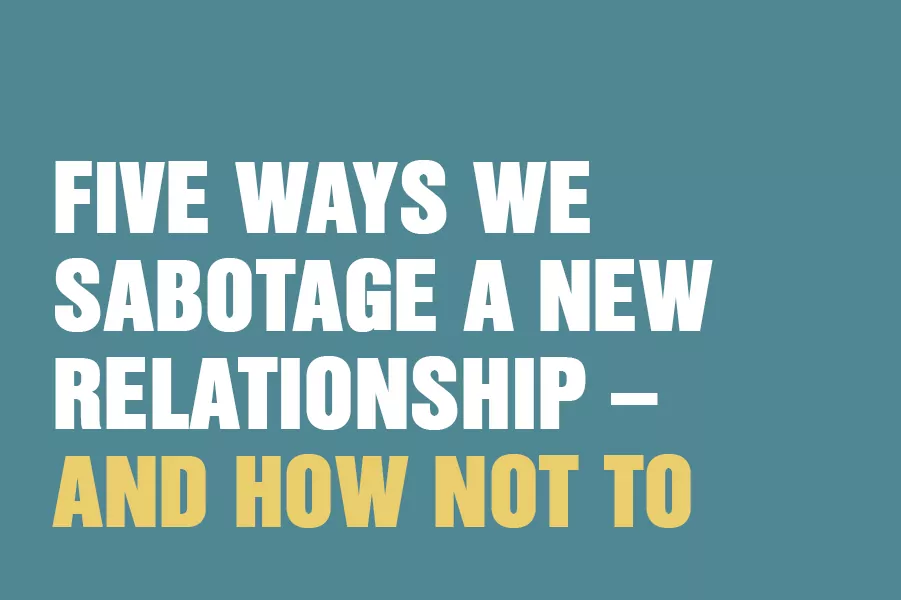One of the main issues couples attending relationship therapy face is a lack of intimacy; particularly couples who have been together for a long time. At the start of a relationship, you enter what’s often known as the ‘honeymoon phase’. You’ll get butterflies every time you see them, you’ll likely have a lot of physical contact and intimacy, and you’ll spend a lot of time building up a deeper, emotional connection. Unfortunately, this phase doesn’t last and will eventually transition into something new, but just because the passion in your relationship might be on the back burner, it doesn’t necessarily mean that it’s over completely.
If you’re in a relationship but feel distant from your partner or like the spark has faded and you’re lacking intimacy, you might be feeling disconnected, that you’re not having your own needs met or that it’s all a lost cause – but it’s not. Losing intimacy is a natural part of most long-term relationships and doesn’t always point to a broken relationship, but it’s how you deal with it that counts.
In this article, we’re going to explore some of the methods you can use to re-establish an intimate connection with your partner and how to bring intimacy back into a relationship.
Why is intimacy lacking?
The first step to introducing more intimacy into your relationship is to determine the root cause of the lack of it. This could be a personal issue either one of you is facing, such as stress at work or other issues that aren’t necessarily to do with your spouse, or it could be a shared change in dynamic. For example, a lot of couples who start families realise that they’ve grown apart and are no longer intimate with each other because so much of their time is spent on their children, so there’s little to no time or energy left for the partner.
On the other hand, personal issues such as mental health struggles with anxiety or depression, professional/workplace struggles, or health problems can also get in the way of intimacy by sapping up emotional and physical availability.
If you notice intimacy is lacking but you’re unsure what the cause is, or if you feel like you know the cause, it’s a good idea to sit your partner down and discuss this with them. Ask them what they think is causing the gap between you and see if you agree on the root cause. If you can’t determine the issue, or if you can’t agree on what’s causing it, seeing a couples therapist could help.
It’s important to note that when you’re having a conversation about what could be causing the lack of intimacy, you don’t use an accusatory tone or take an argumentative approach. A lot of the time, a lack of intimacy or availability isn’t intentional, and if you feel like your partner might be the one pulling back or withholding, there’s every chance they don’t even realise they’re doing it. This is why it’s important to remain calm and to not assign blame.
What type of intimacy is lacking?
Once you’ve established what’s causing the lack of intimacy in your relationship, it’s time to look at what type of intimacy has been affected. There are two types of intimacy: physical intimacy and emotional intimacy. Sometimes, relationships lack both, but other times, only one form of intimacy is lacking. That being said, the two are connected and it’s possible that, for example, if you start losing an emotional bond to someone, you might be less inclined to be physical with them and then your sex life suffers as a result. Knowing which type of intimacy has been affected will help you when choosing methods to reignite the spark.
How to bring intimacy back into a relationship
So, now you’ve drilled down the what and the why, it’s time to look at how to get things back on track. Largely, the methods you use will depend on your relationship and your own circumstances, but we’ve put together some of the more common methods that can be used to get things back to how they were.
Try emotional attunement
Emotional attunement works well for couples who are missing the emotional connection they once had. The basis of every relationship is founded on emotional support, but this can be easy to lose if you stop communicating with your partner, and even more so if how you communicate transpires into negativity and confrontation.
Naturally, you will have disagreements with your partner that will lead you to want to have discussions about intimate feelings with each other, but instead of being defensive, try to approach situations with empathy and understanding. Emotional attunement is about portraying what you need and listening to what your partner needs, but in a respectful and empathetic way. This can go a long way to repairing emotional closeness, allowing you to give your partner what they need, and allowing you to express negative feelings in a more productive way without conversations erupting into conflict.
Engage in physical touch
If you find that your relationship is lacking physical intimacy, taking small steps to reignite the attraction and passion can work. For example, holding hands whilst you’re out, hugging, cuddling each other when you watch TV, and giving an affectionate touch when you see your partner in passing can all help to re-establish a physical connection.
If you’re struggling with this or already do these things, try and increase the length of time you do them, such as hugging for a little bit longer each time. Be careful not to fall into a routine, though. Don’t make the mistake of scheduling in physical intimacy or contaminating areas like the bedroom with stressful topics of conversation, as both of these things can decrease arousal. Spending time with one another may need to be penciled in if you’re both busy with work and kids, and in this case is incredibly important, but scheduling time for sex can kill passion in your relationship. You want to ensure that you are spending quality time together, without making it feel like a task on your to-do list.
Relationship counselling at The Awareness Centre
Therapy is a great tool for couples who are struggling to bring intimacy back into their relationship. At The Awareness Centre, we have a number of psychosexual and relationship counsellors who work with couples to sift through their problems and get the spark back, providing effective relationship advice to help you rekindle passion, build your sexual connection, and kickstart your emotional intimacy once more. Whether you and your partner are having sexual problems or emotional issues, our highly trained team of experts are best placed to support you through our couples therapy and relationship counselling & sex therapy services.
If you’d like to find out more about our services and how we might be able to help you and your partner navigate your relationship problems, or to book an appointment either online or at one of our London clinics with a relationship coach at TAC, please get in touch with us today.







